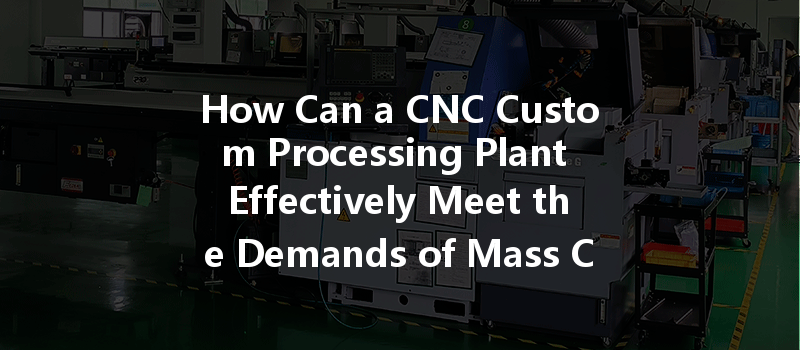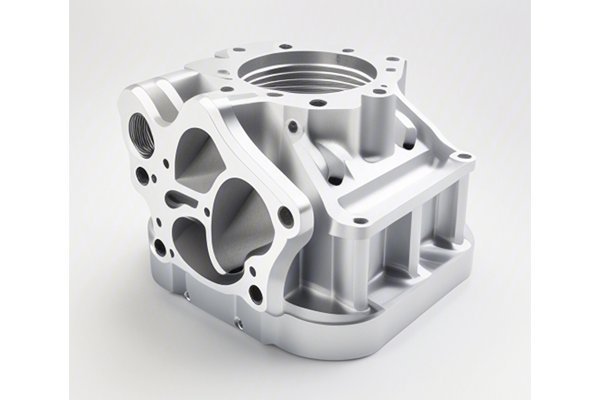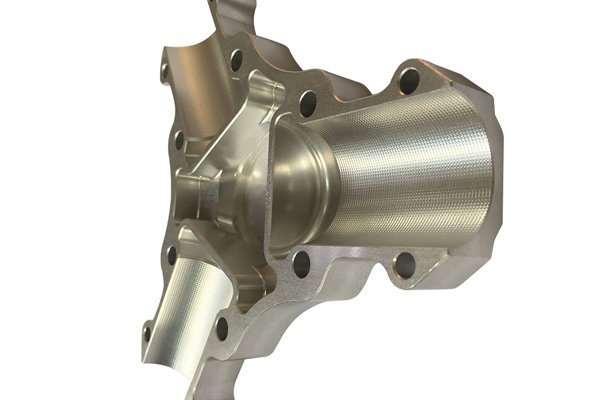Imagine a world where products are not just made but are designed to fit individual needs seamlessly, combining personalized touches with the efficiency of mass production. This is no longer a distant dream but a reality that has taken form through innovations in technology, particularly in CNC (Computer Numerical Control) machining. With recent statistics indicating that nearly 60% of consumers are willing to pay more for customized products, it’s clear that mass customization is not only desirable but essential in today’s marketplace. But how can a CNC custom processing plant meet these increasing demands?
Understanding Mass Customization
Mass customization refers to the ability to produce goods that are tailored to individual specifications while maintaining the efficiency associated with mass production. This concept bridges the gap between high-volume manufacturing and personalized design. The challenge lies in balancing the need for customization with operational efficiency, cost-effectiveness, and quality assurance.
The Role of CNC Machining in Mass Customization
CNC machining is pivotal in enabling mass customization. By employing advanced computer technology to control machining tools, CNC machining allows for precise replication of designs while accommodating adjustments for individual customer preferences. Here’s how CNC custom processing plants are adapting to meet the challenges of mass customization:
One of the foremost solutions that CNC plants employ is the setup of flexible manufacturing systems. These systems are capable of producing various parts in different configurations without the need for extensive retooling. Many CNC plants integrate automated machinery that can switch quickly between tasks by changing toolpath programs. This reduces downtime and enhances productivity, allowing manufacturers to cater to diverse customer specifications without sacrificing efficiency.
Another technology that has greatly enhanced the capability of CNC machining plants is the utilization of advanced Computer-Aided Design (CAD) and Computer-Aided Manufacturing (CAM) software. These tools allow engineers and designers to create complex, customizable designs that can be easily altered to meet specific client requirements.

CNC custom processing plants are also implementing modular tooling systems that allow for rapid adjustments in tooling configurations. These systems enable quick changes to be made to reduce setup times when switching from one product to another. As such, plants can efficiently handle various orders simultaneously, catering to mass customization demands more effectively.
Modern CNC machines come equipped with IoT (Internet of Things) capabilities, allowing for real-time data monitoring and integration across production processes. By utilizing data analytics, CNC machining plants can analyze production efficiency, downtime, and order fulfillment rates. This information can guide managers in optimizing the production process to better cater to customized orders.
To meet the demands of mass customization, effective supply chain management becomes crucial. CNC plants are implementing just-in-time (JIT) inventory strategies that improve flexibility and reduce waste. Suppliers can deliver materials based precisely on current production schedules, ensuring that the plant is not overstocked or understocked. This responsiveness is key in adjusting quickly to changing customer needs.
With customized products, maintaining quality becomes critical. CNC plants typically employ advanced inspection technologies such as laser scanning and machine vision systems to detect defects in real-time. By monitoring quality metrics closely, these plants enhance customer satisfaction through the reliable delivery of high-quality products.
As we’ve explored, the intersection between CNC machining and mass customization relies heavily on advanced technology and strategic management practices. From flexible manufacturing systems and advanced software to real-time data integration and robust supply chain optimization, CNC custom processing plants are uniquely positioned to meet the growing consumer desire for customized products.
In summary, the adoption of these technologies is not just beneficial but critical in a market that increasingly values personalization. As businesses look to the future, embracing CNC machining capabilities will not only improve operational efficiency but will also enhance customer relations through tailored solutions.
The realization of mass customization in production is an evolving story that brings possibilities for creativity and innovation to the forefront. Therefore, considering the integration of these advanced manufacturing considerations in CNC operations is paramount for any business seeking to thrive in today’s landscape.
As you ponder your strategic approach or that of your business’s CNC processing plant, remember the importance of flexibility and quality at its core—it’s what will set you apart in a competitive marketplace.






